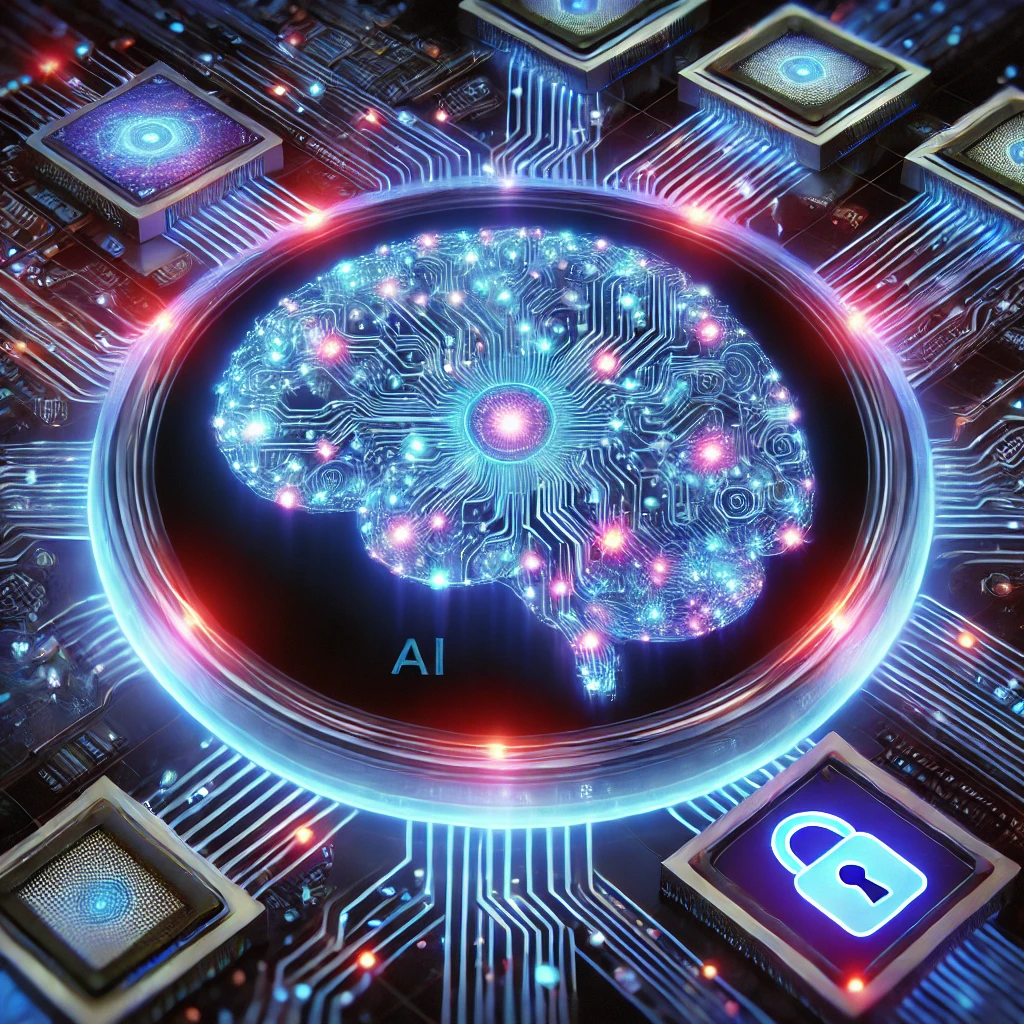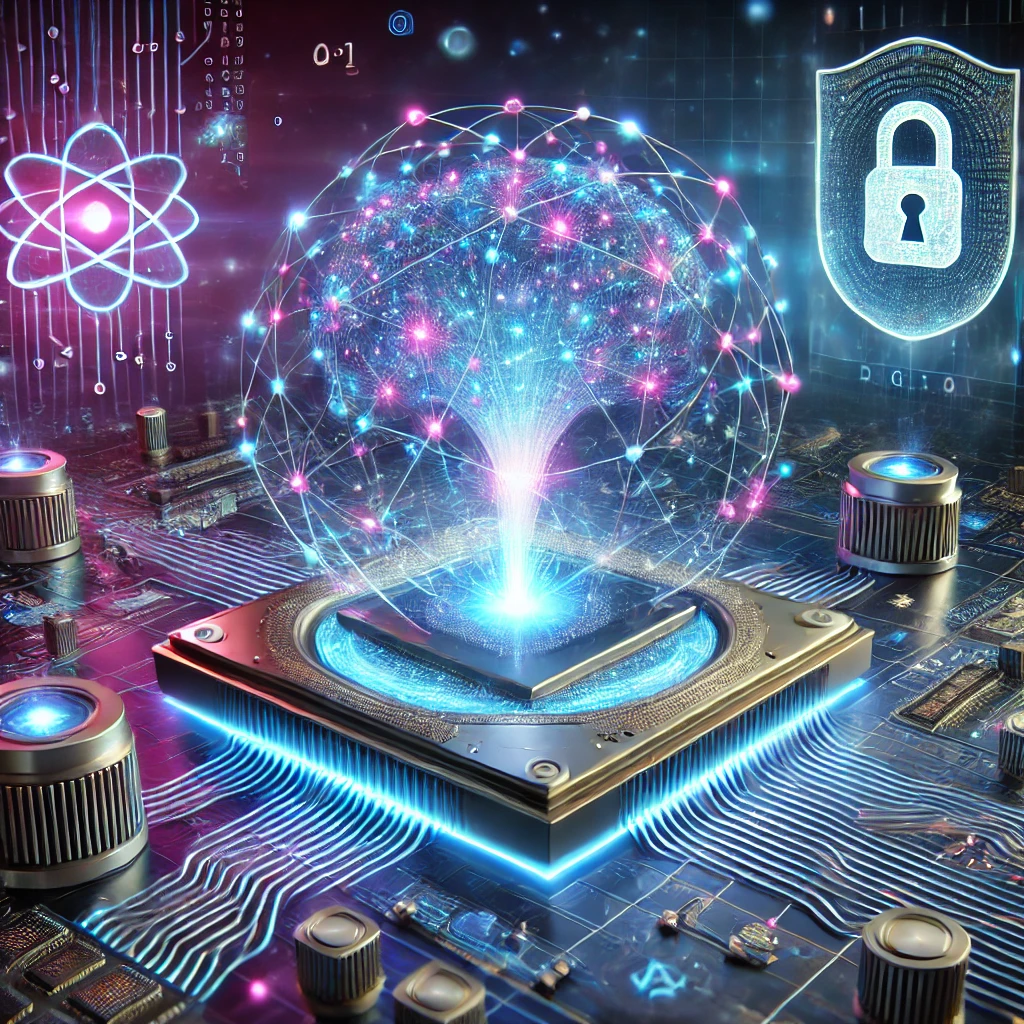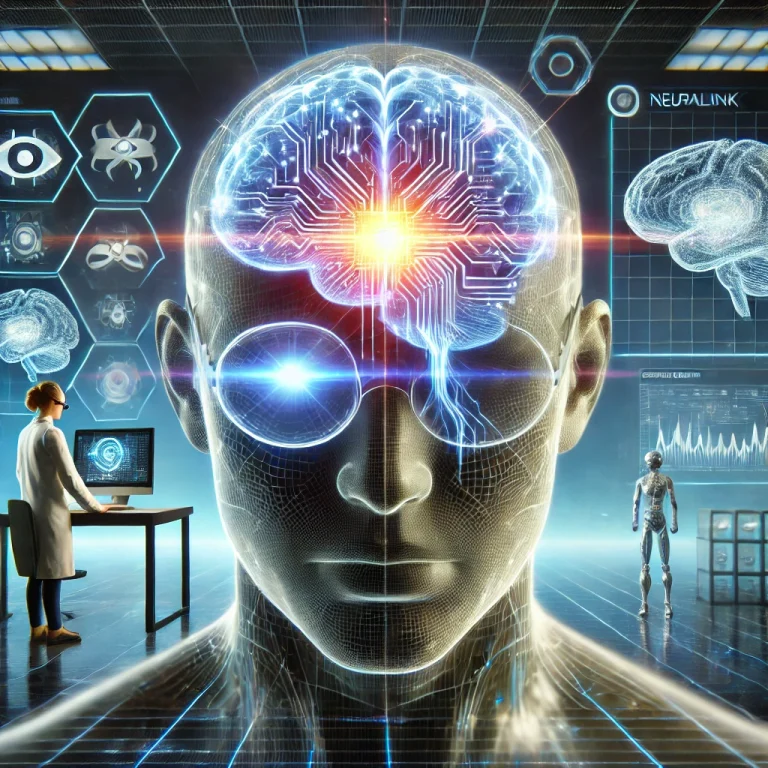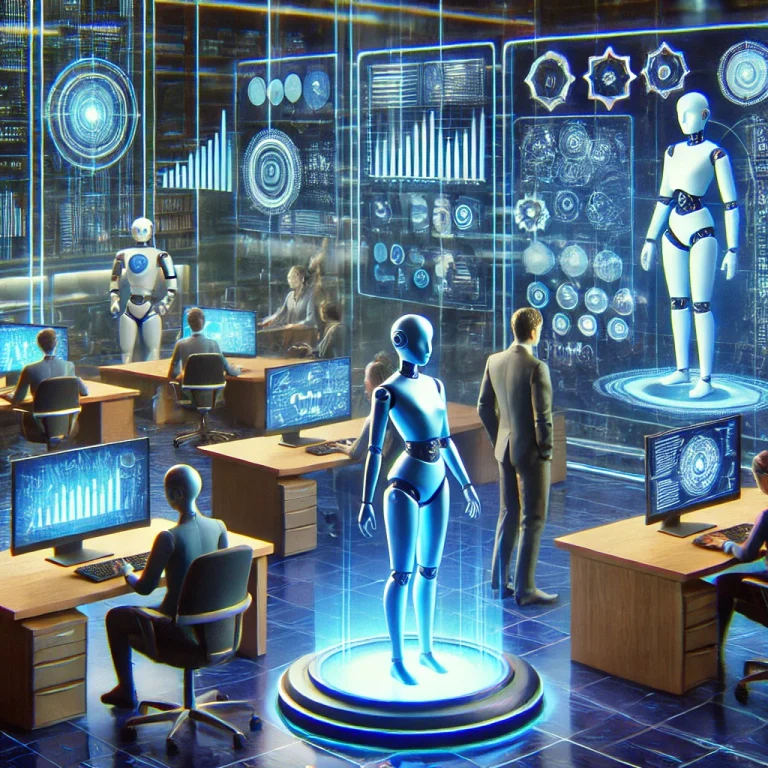How Quantum Computing is Changing the Future of AI and Cybersecurity
Introduction
Quantum computing is revolutionizing the way we approach artificial intelligence (AI) and cybersecurity. Unlike classical computers, which process information using binary bits (0s and 1s), quantum computers leverage qubits, enabling them to perform complex calculations at unprecedented speeds. This technological leap holds immense potential for AI advancements and presents both opportunities and threats in the realm of cybersecurity.
In this article, we will explore how quantum computing is shaping the future of AI and cybersecurity, its potential applications, challenges, and a comparative analysis with classical computing.
Understanding Quantum Computing
Quantum computing operates on principles of quantum mechanics, primarily superposition and entanglement.
- Superposition: Unlike classical bits, which exist as 0 or 1, qubits can exist in multiple states simultaneously. This allows quantum computers to process vast amounts of information at once.
- Entanglement: When qubits become entangled, the state of one qubit is directly linked to the state of another, regardless of distance. This enables ultra-fast and highly efficient computations.
These properties make quantum computers exponentially more powerful than traditional supercomputers for specific problem-solving tasks.
How Quantum Computing is Transforming AI
Artificial Intelligence, particularly machine learning (ML) and deep learning, requires immense computational power. Quantum computing has the potential to supercharge AI algorithms in several ways:
1. Faster Training of AI Models
Training deep learning models using classical computers can take days or even weeks. Quantum computing can accelerate training times significantly by processing multiple possibilities in parallel, making AI more efficient and scalable.
2. Enhanced Pattern Recognition
Quantum computers can analyze vast datasets at lightning speed, making them ideal for pattern recognition in applications like image recognition, fraud detection, and medical diagnostics.
3. Optimized AI Algorithms
Quantum AI algorithms, such as the Quantum Approximate Optimization Algorithm (QAOA) and Quantum Support Vector Machines (QSVM), can solve optimization problems far more efficiently than their classical counterparts.
4. Advancements in Natural Language Processing (NLP)
Quantum computing can significantly enhance NLP by improving text analysis, language translation, and voice recognition capabilities, leading to more human-like AI interactions.
5. Better AI-Driven Drug Discovery
Quantum-powered AI can simulate molecular interactions at an atomic level, accelerating drug discovery processes for diseases like cancer and Alzheimer’s.
The Impact of Quantum Computing on Cybersecurity
While quantum computing offers numerous benefits, it also poses a significant threat to traditional cybersecurity. Many encryption methods that secure sensitive information today could become obsolete in a quantum future.
1. Breaking Classical Encryption (RSA and ECC Vulnerabilities)
Most encryption systems, including RSA (Rivest-Shamir-Adleman) and ECC (Elliptic Curve Cryptography), rely on the difficulty of factoring large numbers.
- Shor’s Algorithm, a quantum algorithm, can factor large numbers exponentially faster than classical computers, potentially breaking RSA encryption in minutes.
- This threatens everything from online banking to government communications and personal data security.
2. The Rise of Quantum-Safe Cryptography (Post-Quantum Cryptography)
To counteract quantum threats, researchers are developing Post-Quantum Cryptography (PQC) – encryption methods resistant to quantum attacks. Some promising approaches include:
- Lattice-Based Cryptography
- Hash-Based Cryptography
- Multivariate Quadratic Equations
3. Quantum Key Distribution (QKD) for Unbreakable Security
Quantum Key Distribution (QKD) leverages quantum entanglement to create virtually unbreakable encryption.
- QKD ensures that any attempt to eavesdrop on a communication automatically disturbs the quantum state, alerting both sender and receiver.
- Companies like ID Quantique and Cambridge Quantum Computing are already developing QKD-based security solutions.
4. Enhanced Cyber Threat Detection with Quantum AI
Quantum-enhanced AI can detect cyber threats in real-time, enabling:
- Faster anomaly detection
- Predictive cybersecurity threat modeling
- Advanced fraud detection in banking and finance
Classical Computing vs. Quantum Computing: A Comparison
| Feature | Classical Computing | Quantum Computing |
|---|---|---|
| Processing Power | Sequential, limited by transistor count | Parallel processing via qubits, exponentially faster |
| Encryption Security | Secure with RSA, ECC, AES | Can break classical encryption but enables quantum-safe cryptography |
| AI Applications | Slower machine learning training | Faster AI model training and pattern recognition |
| Cybersecurity | Vulnerable to advanced attacks | Can both weaken and strengthen cybersecurity |
| Data Processing | Linear, requires extensive computational resources | Non-linear, can process multiple possibilities at once |
| Commercial Availability | Widely available | Still in early-stage development |

Challenges and Limitations of Quantum Computing
Despite its immense potential, quantum computing faces several hurdles:
1. Hardware Limitations
- Quantum computers require extremely low temperatures (-273°C) for stable operations.
- Maintaining quantum coherence is challenging due to decoherence and noise interference.
2. High Development Costs
- Building and maintaining quantum computers is expensive and requires specialized facilities.
- Only major tech giants like Google, IBM, and Microsoft currently have the resources to develop quantum hardware.
3. Lack of Quantum Algorithms
- Most current algorithms are designed for classical computing.
- Developing efficient quantum algorithms for real-world applications is still an ongoing challenge.
4. Security Risks
- If quantum computers fall into the wrong hands, highly sensitive information could be decrypted, posing a global security risk.
- There is an urgent need for global quantum cybersecurity policies to prevent misuse.
Future Outlook: What’s Next?
1. Quantum AI Integration in Industries
- Healthcare: Faster drug discovery and medical diagnosis.
- Finance: Fraud detection, risk analysis, and optimization of investment strategies.
- Logistics: Quantum-enhanced route optimization for supply chain management.
2. Advancements in Quantum Cryptography
- Governments and corporations are investing in quantum-resistant encryption.
- The rise of Quantum-as-a-Service (QaaS) will allow businesses to access quantum computing power via the cloud.
3. The Quantum Arms Race
- The US, China, and Europe are heavily investing in quantum computing.
- Countries are preparing for “Y2Q” (Quantum Cryptography Breakage Day), when classical encryption will no longer be secure.
Conclusion
Quantum computing is set to redefine the future of AI and cybersecurity. While it brings transformative benefits, including faster AI training, enhanced cybersecurity, and unbreakable encryption, it also introduces new risks such as breaking classical encryption and cyber threats.
To harness the power of quantum computing responsibly, governments, tech companies, and cybersecurity experts must work together to develop quantum-safe cryptography and ensure a secure digital future.
As quantum technology continues to evolve, businesses and individuals must stay ahead of the curve by adopting quantum-resistant security measures and exploring the potential of Quantum AI.
🚀 The future is quantum-powered—are you ready for it?






Completely I share your opinion. In it something is also to me this idea is pleasant, I completely with you agree.
An impressive share! I have just forwarded this onto a colleague who has been conducting a
little homework on this. And he in fact ordered
me lunch due to the fact that I found it for him…
lol. So let me reword this…. Thank YOU for the meal!!
But yeah, thanx for spending some time to discuss this issue here on your website.